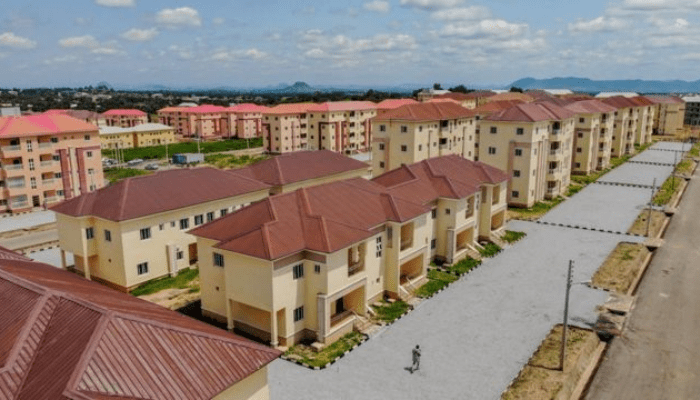The Federal Government’s approval of a N250 billion real estate investment fund, aimed at providing affordable, long-term mortgages to Nigerians, has garnered both praise and concern from key industry figures.
While the initiative is seen as a step forward in addressing the country’s housing deficit, experts are questioning its implementation, sustainability, and the role of existing institutions in the housing sector.
The newly introduced Ministry of Finance Incorporated (MOFI) Real Estate Investment Fund will offer low-cost mortgages to individuals seeking home ownership, with interest rates expected to range between 11 to 12 percent. The fund will be supported by a blend of government seed funding and private-sector investments, with the government contributing N150 billion from low-interest loans with terms extending up to 40 years.

Finance Minister Wale Edun highlighted the aim to attract long-term investors, such as pension funds and insurance companies, to add further capital at market-based rates. This combination of government-backed funding and market investments is expected to allow for affordable mortgage offerings.
However, experts have raised concerns about the fund’s management. Prof. Timothy Nubi, Director of the University of Lagos Centre for Housing and Sustainable Development, commended the government’s efforts but questioned which institution would oversee the fund. He noted the existence of several government institutions, including the Federal Mortgage Bank of Nigeria (FMBN) and the Nigeria Mortgage Refinance Company Plc (NMRC), which already handle housing-related matters. Nubi called for clarification on whether a new organization would be created, warning that establishing new bodies for every initiative undermines long-term development.
He stressed the importance of leveraging existing institutions rather than creating new ones, emphasizing that a holistic approach to addressing the housing deficit, including slum regeneration and specialized housing projects, was essential.
Similarly, Aliyu Wamakko, the immediate past president of the Real Estate Developers Association of Nigeria (REDAN), supported the initiative but argued that the focus should be on creating a conducive environment for private developers. Wamakko suggested that the government should provide a supportive policy framework, land, infrastructure, and low-interest loans to private developers, who could then efficiently deliver affordable housing. He highlighted that such an approach would not only reduce housing costs but also create jobs and generate wealth, with each house potentially creating 25 jobs.
While the initiative has the potential to significantly impact Nigeria’s housing sector, the mixed reactions from experts indicate that careful planning and clear execution will be critical for its success.



